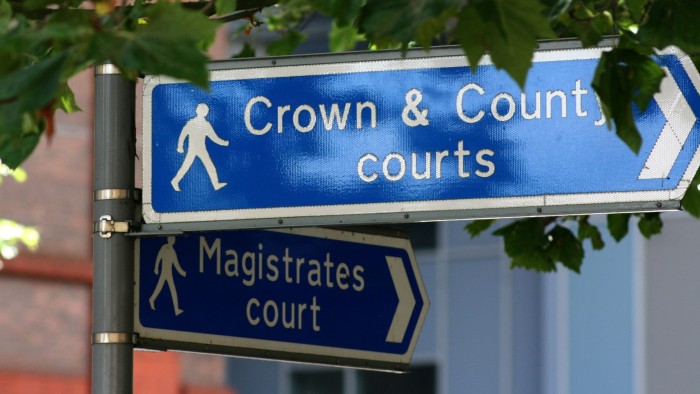Unlock the Editor’s Digest for free
Roula Khalaf, Editor of the FT, selects her favourite stories in this weekly newsletter.
Creditors are increasingly struggling to recover unpaid debts in England and Wales as justice system funding pressures have led to “extremely slow and ineffective” enforcement of court orders, a body chaired by a senior judge has found.
The Civil Justice Council, chaired by Sir Geoffrey Vos, Master of the Rolls, warned that businesses and individuals face “very significant delays” reclaiming what they are owed even after securing judgments against debtors from the County Court.
“The inability to enforce effectively through the County Court has destroyed confidence amongst creditors,” said the report this week by the CJC, a body set up to advise the Lord Chancellor on civil justice.
The report, by a working group of the CJC chaired by Judge Karen Walden-Smith, shines a light on the often-overlooked area of civil enforcement.
Robert Thompson, partner in collections and recoveries at law firm Brachers, who chairs the Civil Court Users Association, said enforcement had been “crying out for improvement” for years. “Instead, it has been largely neglected.”
The CJC acknowledged that many defendants facing legal proceedings and the threat of bailiffs were people on low incomes, grappling with insecure jobs and relying on benefits.
It said that as of January 2024, 14.6mn people or 28 per cent of UK adults were not coping financially or finding it difficult to cope, citing Financial Conduct Authority data.
Yet the report found that a complex and inefficient civil enforcement system was failing debtors as well as creditors.
Debt advice charities told a public consultation that the CJC ran last year that debt collection methods often discouraged effective engagement with those who owe money.
“Both ‘sides’ of the enforcement debate complain that the current system is arcane and difficult to understand,” the report added.
The CJC said it recognised that many debtors were seeking to balance competing financial commitments and were not “wilfully seeking to avoid paying that which they owe”. But there was also a category of those who “could pay, but won’t pay”.
“The concern expressed by many creditors is that defendants can avoid enforcement too easily” due to a poorly resourced system.
“The experience of users with the process of enforcement through the County Court is that it is extremely slow and ineffective.”
A judgment from the County Court, which handles civil cases including debt recovery, is often only the first step for creditors trying to recover their money.
Enforcement methods include asking the court to instruct Court Court bailiffs through a so-called Warrant of Control. Depending on the type of debt and sums involved, the matter can also be passed to High Court Enforcement Officers.
Other options include Attachment of Earnings Orders, which require employers to deduct debts from wages, and Third Party Debt Orders to freeze funds held in bank accounts.
The report found that “enforcement of judgments in general is currently performing poorly”. It said some creditors were giving up on warrants of control, for instance, due to “limited numbers of court bailiffs and the volume of work creating delays and frustrations”.
The report made several recommendations, including a shift to a “unified digital court for the enforcement of judgments” and an online portal where debts are recorded.
Vos said in a statement that civil enforcement had been “overly complex” for too long. He added: “I hope that all stakeholders will carefully examine the recommendations.”
The Ministry of Justice said in a statement: “We thank the Civil Justice Council for this report. We will carefully consider its findings and respond in due course.”




